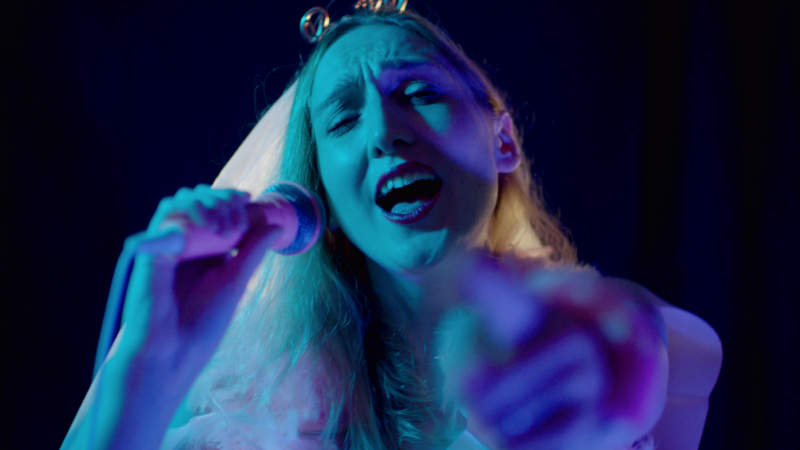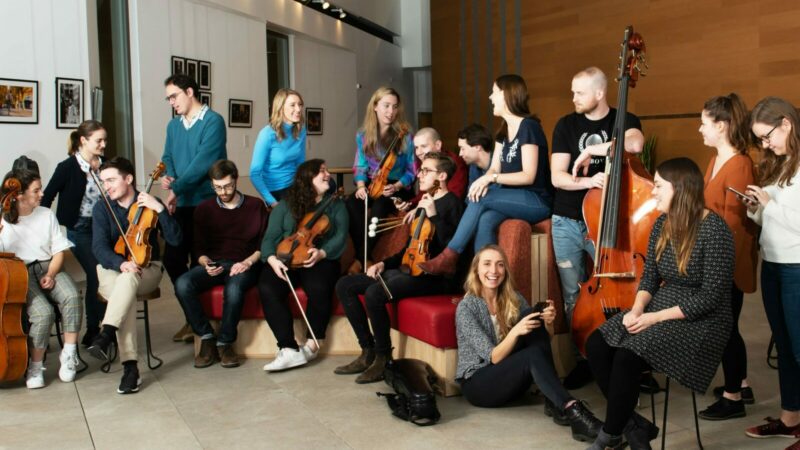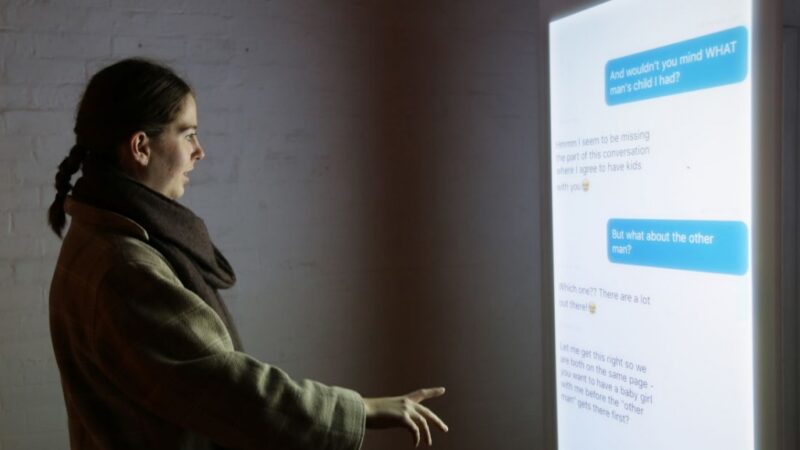The Space has commissioned MTM and Hybrid Research to conduct two pieces of independent research in order to assess its impact with both audiences and stakeholders across the UK arts and cultural sector.
The responses demonstrate the appetite amongst audiences for the sort of work The Space is commissioning, as well as the overwhelmingly positive effect The Space is having by working with many arts and cultutal organisations across the country.
Audiences
The arts sector
Hybrid Research spoke to a range of arts organisations and artists commissioned by The Space and sector stakeholders across the UK arts and culture sector. 70% of commissioned artists and organisations experienced increased interest or demand from audiences in their work; with over half of those interviewed concluding that they have gained new skills and experience after working with The Space. Sector stakeholders’ perceptions of the impact that The Space has had on the UK arts and cultural sector were significantly improved, with the organisation perceived to be making a growing impact. Crucially, stakeholders and artists alike struggled to identify an equivalent organisation that offered similar services to The Space, highlighting the vital role it plays in the wider ecosystem of the sector.

“A professional sounding board, helping to develop ideas, and a different perspective” – commissioned artist
“The Space enable and broker, offer opportunity and resources – and activate” – sector stakeholder
Hybrid Research spoke to a range of arts organisations and artists commissioned by the organisation and sector stakeholders across the arts and culture industry (full list given below.) The responses demonstrate the overwhelmingly positive effect The Space has had on many arts and cultural organisations across the country.
The findings are categorised against The Space four main aims, with recognition also given to Intermediate Outcomes. These are:
• To extend the accessibility and reach of arts and culture
Greater integration of digital within and across creative, marketing, education and development
• To support new artistic talent and the creation of new work
Developing new storytellers and equipping them with techniques
• To support skills development and growth of the creative economy
Delivering good digital practice
• A commissioning and development programme, committed to the digital capture, extension and creation of the arts
Sustainable growth in the levels of digital activity
Increased artist/arts organisation brand profile
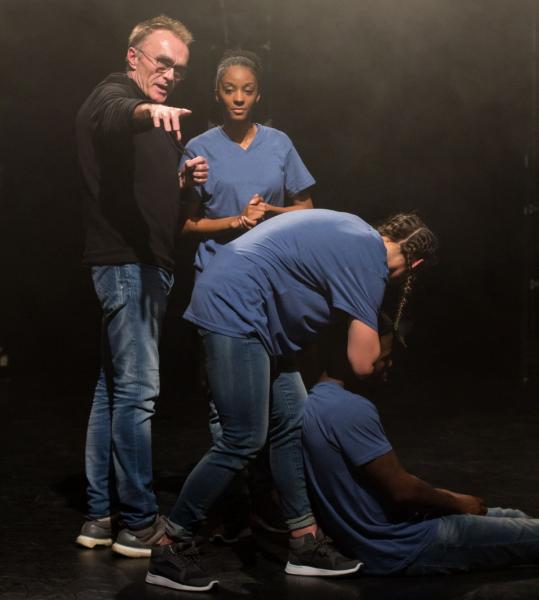
Hybrid Research interviewed 21 commissioned arts organisations, artists and sector stakeholders, and surveyed a further 20 online with four follow up interviews. The interviews took place with: 59 Productions (City of Glass), Abandon Normal Devices (In the Eyes of the Animal), Artichoke Trust (London 1666), Music Theatre Wales (Golden Dragon), Complicite (The Encounter), Nick Ryan (Adrift), Opera North, (The Ring Cycle), Rambert (The Creation), Miracle Theatre (Cinderella), Artstrust Productions (Emancipation of Expressionism), Bristol Old Vic (Messiah), Slung Low (Flood), Tromolo Productions (Music is Torture), Choose Your Own Documentary Ltd (The Boy In the Book) and Northern Ballet (The Boy in the Striped Pyjamas).
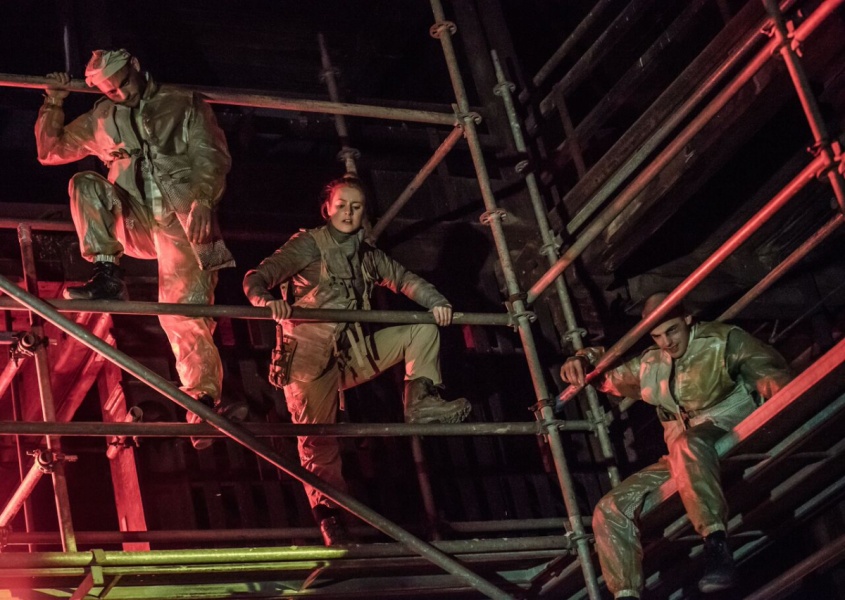
A number of sector stakeholders were interviewed: John McGrath, Artistic Director and CEO, Manchester International Festival, Gabrielle of 59 Productions, Sarah Ellis, Head of Digital Development, RSC, Emma Keith, Head of Broadcast & NT Live, National Theatre, Mandy Berry, CEO, Cinegi, Tony Followell, Head of Media, ROH and Fernando De Jesus, of Choose Your Own Documentary Ltd (The Boy in the Book).
Commissioned organisations and artists: feedback
Surprisingly, many of the commissioned organisations and artists did not gather or use feedback from existing audiences, citing the ability to reach new audiences as more of a priority. Target audiences for the latter were generally young people and international audiences. Despite being extremely keen to deliver a digital project (with keenness ranked at 93 / 100), readiness was ranked at 77 / 100; with – unsurprisingly – the highest ranked barrier being funding (at 92%) followed by lack of in-house skills (52%.)
Innovation was a key theme for the respondents: within the work itself; the technologies used and across the processes, learning and audience engagement.
There were a wide range of successes from marketing and development activitiesincreased interest or demand from audiencesincreased brand awareness. Though 72% of respondents selected the highest or second highest score when asked if their existing skills / knowledge and / or experience enabled them to undertake their commission, 92% felt they had gained new skills or experience having delivered it; and many were hugely positive about working with The Space again.
Those interviewed cited many and varied benefits of working with The Space, including improving process and building technical skills, as well as helping to develop advocacy and driving awareness of the organisation. One of the biggest benefits of working with The Space, according to interviewees; was the network the organisation provided into the sector, and access to highly skilled people and companies. The support The Space offered was widely praised, but it was seen as imperative that The Space maintain this support over the long-term. Funding was again cited as the most important resource, although the distinction between The Space as a commissioner and (for example) ACE as a funder wasn’t always clear.
Interviewees also believe The Space needs to raise awareness of its services and the sector support it can provide. Respondents suggested creating a hub or community network, proactively bringing commissioned organisations and artists together and providing a forum to share learnings and information. The four main sector initiatives that interviewees felt would help digital developments were around rights; production support; advocacy / networking and awareness raising.
“The Space were excellent to work with…probably the most beneficial element is they’re active in being involved…they take on board ideas and restrictions”
– commissioned artist
Sector Stakeholders: feedback
The perception of the impact that The Space has had on the UK arts and cultural sector was seen as significantly improved; it was considered to be making a growing impact, ‘doing the right thing’, and clarifying its role and remit. Stakeholders acknowledged that The Space was recognising small and medium organisations outside London who might lack access to digital expertise.
Interestingly, whilst 62% of commissioned organisations were willing to pay for the services offered by The Space; only two of seven stakeholders interviewed said they would be willing to pay. Demonstrating the value The Space can offer once artists have experienced their support and expertise.
Stakeholders felt The Space should focus on remaining an innovator; enabling rather than delivering and building up relationships across the creative technology sector; as well as access to resources and training.
The stakeholders had a few words of caution: namely, that the work should always be the impetus – not the technology; with a further reiteration that the live experience should always be superior to any other way of experiencing the work. Equally, sector stakeholders felt it was important for The Space to continue expanding the base of partners and organisations; to build knowledge and information; and to keep taking risks and exploring.
Crucially, stakeholders, organisations and artists alike struggled to identify an equivalent organisation that offered similar services to The Space, highlighting the vital role it plays in the wider ecosystem of the sector.
“[The Space] should do more of what they’re doing” – Sector stakeholder
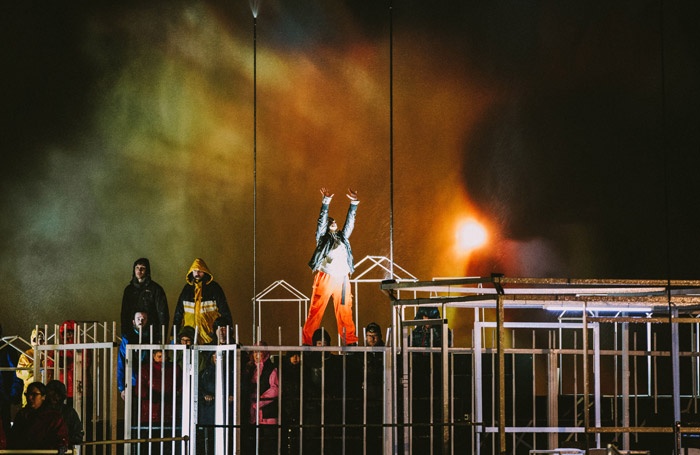
Workshops feedback
Priorities for workshop attendees were artistic development and developing services and audiences; so it is encouraging that 100% of respondents felt that The Space training was pitched at the right level. 60% of attendees said they would pay for the training offered. An average score of 90 / 100 was given when asked how keen they were on delivering a digital project after the workshop; although a score of 67 / 100 was given when asked how confident they felt about delivering a digital project.
“[Working with] The Space was much easier than working with mainstream broadcasters…. we felt much more in control of the content than working with others. Nonetheless, they did push us…”
– commissioned artist
How useful was this resource?

